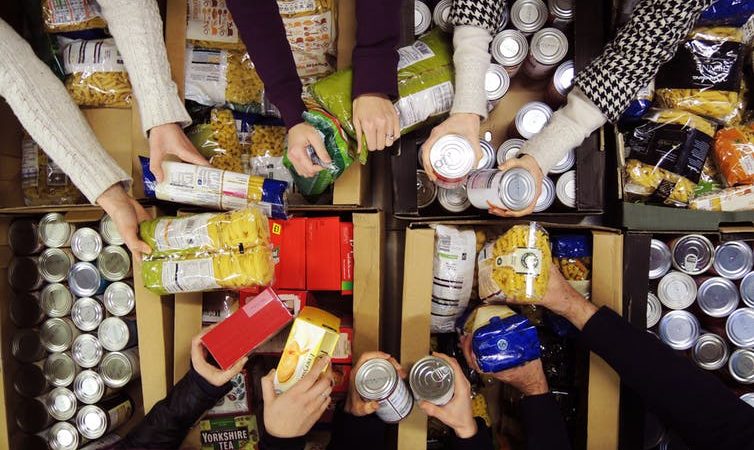UK farms are throwing away 7% of their annual harvest worth £1.2 billion every year because it does not meet retailers quality standards.

Food that is being rejected by supermarkets is set to be redistributed to charities and small businesses in an effort by farmers and producers to reduce food wastage and help solve UK hunger and climate change.
The Food Surplus Network comes in light of a new study by the Waste and Resources Action Programme (WRAP) which found that farms in the UK are throwing away seven percent of their annual harvest worth £1.2 billion every year because it does not meet retailers quality standards.
The network will connect farmers with new markets that can use surplus food; including a directory of organisations redistributing surplus food to charities, businesses which use surplus food to make new products and business-to-business trading platforms.
The need for repurposed food is greater than ever as food banks believe that this summer will see the highest demand yet, as the Trussell Trust recorded a 20 percent increase in emergency food parcels for children in the UK during summer 2018.
Fluctuations in demand and issues during storage or packing also contributed to creating 3.6 million tonnes of waste, which is more than 10 times the amount thrown away by retailers.
Over half of the waste created in primary production was repurposed to feed livestock or distributed to charities. The rest of the waste was ploughed back into fields, composted or used to create energy.
Peter Maddox, director of WRAP, said that the study showed that farmers and producers could vastly reduce waste and repurpose it to help local communities and small businesses.
“There is huge potential to reduce the amount of surplus and waste by promoting best practice, and that’s where our work is now focussed.
“We want to increase redistribution of surplus food as has happened across the retail sector, and I am pleased this will now be much easier through the Food Surplus Network,” he said.
Mark Varney, director of food and network development at FareShare, one of the organisations helping to distribute surplus food to frontline charities, added that they hope the report will shine a light on the issue.
“Assuming two-thirds of this [the food waste] could have been eaten, that’s enough to create over four and a half billion meals for UK citizens each year – a staggering figure.
“By working in close collaboration with farmers and growers, and helping them access up to £50k towards the cost of redistributing edible surplus to people via the FareShare Surplus with Purpose fund, we can unlock more of this good food and get it onto the plates of vulnerable people,” Varney added.
As well as tackling UK poverty and hunger, the redistribution scheme hopes to play a part in minimising climate change.
“Food waste is a major source of carbon emissions,” explained Peter Andrews, the head of sustainability at the British Retail Consortium.
“The challenges involved in tackling food waste in farming are vast, but if we are to be serious about these environmental and social challenges of food production and consumption then we can leave no stone unturned.”
Meka Beresford is a freelance journalist. Follow her on Twitter.
To reach hundreds of thousands of new readers and to make the biggest impact we can in the next general election, we need to grow our donor base substantially.
That's why in 2024, we are seeking to generate 150 additional regular donors to support Left Foot Forward's work.
We still need another 124 people to donate to hit the target. You can help. Donate today.




One Response to “Food rejected by supermarkets to be used to help end UK hunger”
David Harold Chester
The (above) carbon emissions theory of wasted food is incorrect. Whether the food is consumed or thrown away, the same amount of it become CO2. The mater of waste food depends also on how much effort is necessary to collect it and for many farmers this effort is not worth while. So if poor people want to have better access to food, they should be provided with the means to move around the farms and follow the farmer’s instruction for its collection.
Already some attention being given by supermarkets to “ugly” fruits and vegetables and they should also examine how long it takes for an outdated packet, jar or tin of food to spoil. In some cases this may be quite a long while after its due date and these items (the old and the ugly) could be sold more cheaply or given to what are called “the deserving poor” by George Bernhard Shaw.